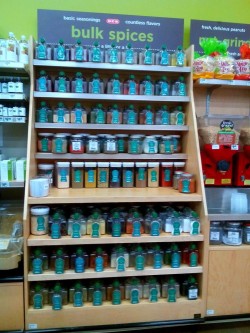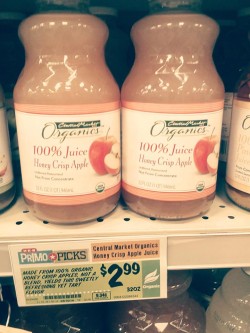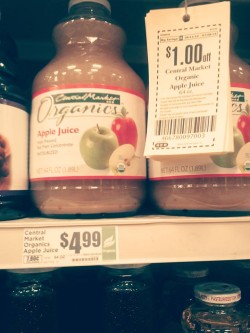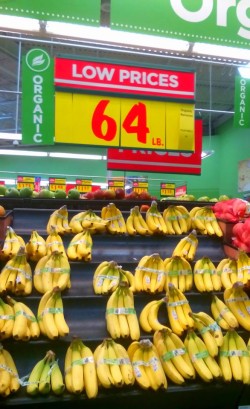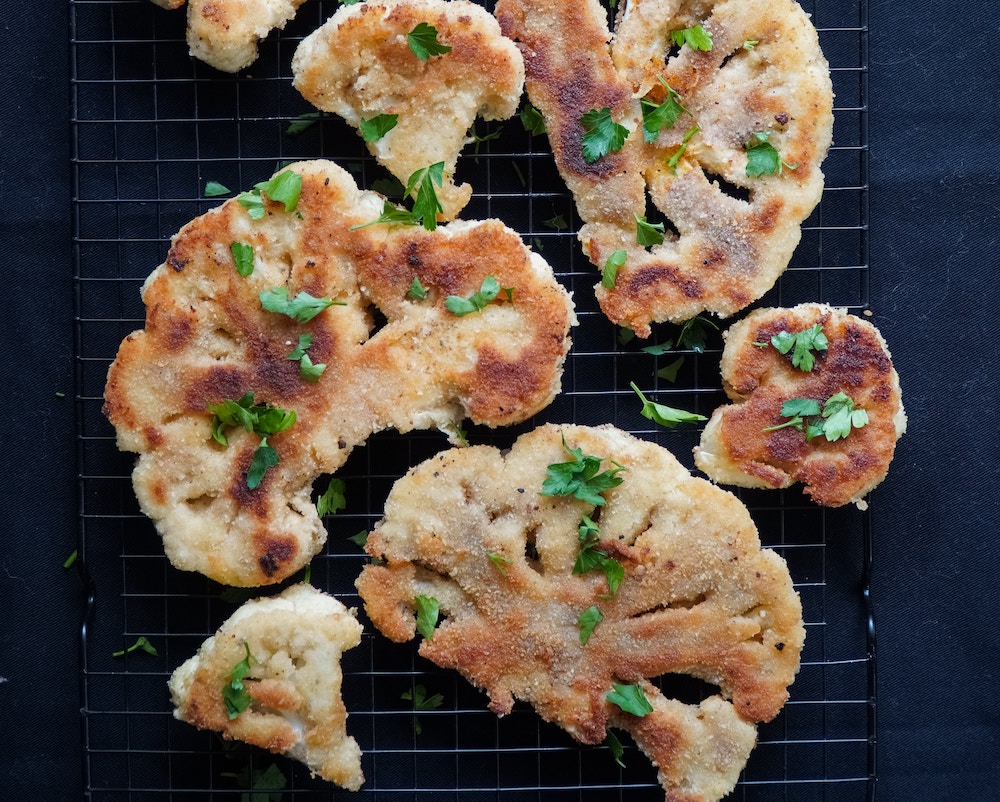For most people, eating healthfully is a daunting task and can seem expensive and time consuming. But the reality is that your health should be your main concern–and it’s worth investing in earlier rather than later. This does not necessarily mean spending hundreds of dollars every week in order to maintain a pristine diet and optimum health. Eating a clean and healthy diet is actually very simple and can be extremely cost-effective. Here are a few tips I’ve learned over the past year that have helped me save money and truly change my life for the better with whole foods:
1. If you wouldn’t put it on your face, don’t eat it. What I mean by this is: What you eat is what you are. If your diet is unhealthy, you will see it in your skin! For instance, you can use fruits on your face and body as natural beauty treatments, like mashing up 1/2 an avocado to use as a face mask. You can’t say that about processed foods, even if they are vegan. Highly processed foods are not something you want to fuel your cells with, so avoid these as much as possible. The less ingredients, the better.
2. Buying in bulk is usually, but not always the best option. Check out the bulk section of your grocery store for best deals–best of all, you can buy as much, or as little, as you want! Check the price per ounce to see if you are making the right decision (in small print near the price of the item). I buy spices in bulk because I can accumulate a plethora of spices for much less than buying a jar of a spice for one recipe.
3. Be wary of “Sale!” promotions, as these are not always the best deal, but an attention grabber to trick you into buying something.
On “sale”, but price per ounce: 9.34 cents (it’s hard to see but it’s underneath the price in a little rectangle)
Price per ounce: 7.80 cents (and a coupon!). The price per ounce is underneath the label here. 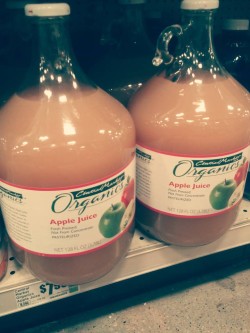
Price per ounce: 6.24 cents. Score!
4. Avoid packaged snack foods. If you like to snack, spend the money on fruit, which is satiating and nutrient dense. You are not only paying for convenience with your health, but for packaging, processing, and could likely make a much cheaper and healthier version yourself.
5. Buy cheap, one ingredient staples. Foods like bananas, rice, or potatoes are my personal staples, but lentils, beans, quinoa, corn pasta, oats, and even flour can be utilized for a variety of purposes. If you eat bread often, it is more economical to buy a bag of flour to make multiple batches of bread, pancakes, pita, and other items. While this may seem more expensive up front than just buying a loaf of bread, it costs less per serving–saving you money in the end.
6. I know I briefly mentioned bananas above, but BANANAS are literally the cheapest, most nutritious, filling food I can think of–but buy organic. If you cannot afford all organic foods, make sure you at least get some good quality organic bananas to eat in order to minimize your pesticide intake. Having a breakfast or meal of at least 1000 calories, or about 10 bananas (less than $2!!) will give you energy for the day without coffee, fill you up, and limit your desire to eat unhealthy foods because your body will understand what pure foods do for it. I buy bananas by the case (40 pounds), but this may not be for everyone. Remember to let them fully ripen, which means get brown and spotty, ensuring the sugars are fully developed and the bananas are not starchy. You may then eat as is or peel and freeze for future smoothies. The only bad thing I have to say about them is: waiting for them to ripen!
7. Save money on other supplies, like body wash, dish wash, cleaning agents, and even fruit and vegetable wash by buying an all natural Castile soap like Dr. Bronner’s. Read more uses for this amazing soap here! I bought a big bottle for about $10.00 and it has lasted me over a month, and I use it daily–for practically everything.
8. Shop around! Go to farmer’s markets, Asian markets, even your local health food stores will have cheaper versions of some foods. It may seem like more work, but you get a wider variety, and will have a working knowledge of where to get what for the best price.
Do you have any great money saving tips? How do you eat healthfully on a budget? Let us know in the comments!
Also by Jessica Ferguson: 4 Sultry Summer Smoothies
What Fruitarians Eat – a 3 Day Food Diary
Related: How to Regrow Your Groceries
Best Tips for Vegan on a Budget
__
Photo: Jessica Ferguson

